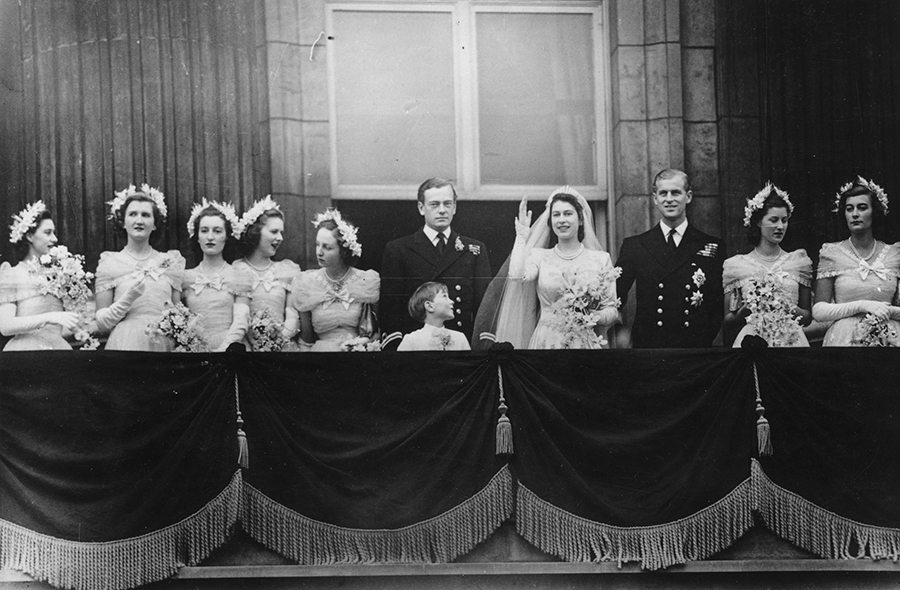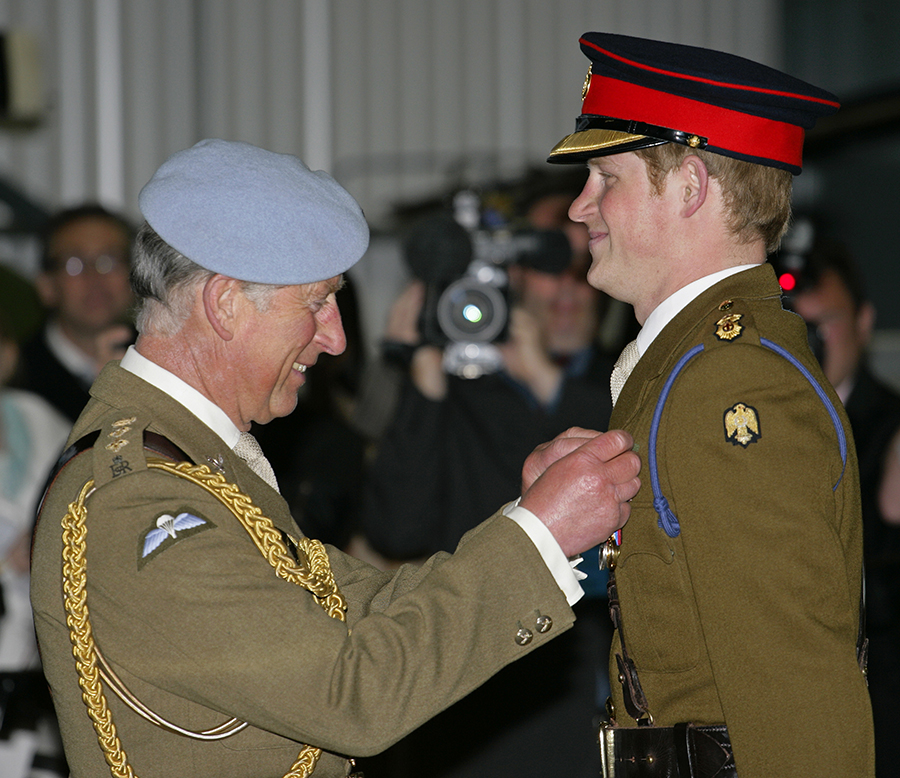Sorry, Not Sorry: As Prince Harry Demands One From His Family, We Look at the Power and Pitfalls of a Simple Apology

Then Prince Charles (bottom, left), Prince William, Prince Harry, Queen Elizabeth II (bottom, right), Camilla, then Duchess of Cornwall, Catherine, then Duchess of Cambridge, and Meghan, Duchess of Sussex depart Westminster Abbey after attending the annual Commonwealth Service, March 9, 2020. Photo: Phil Harris/POOL/AFP via Getty Images
Did Prince Harry get the apology he demanded from his father and brother about the way he and Meghan were treated? It was one of the conditions the Sussexes reportedly set for attending the coronation. We know he’s attending but we don’t know whether anyone apologized. Charles and William have insisted all along they have nothing to apologize for.
Meanwhile, Meghan is staying home. Could her absence have anything to do with the absence of an apology? Or, whether any secret apology was deemed sincere?
It’s no secret that apologies can be a crucial factor in family dynamics and a significant social lubricant.
In fact, King Charles did offer an apology — not to the Sussexes (as far as we know) but to peers and extended family who weren’t invited to his slimmed-down coronation.
“King Charles is said to have apologized to friends and family after they failed to receive invitations to his coronation,” reported the Daily Mail. “The latest confirmed to have been excluded is Lady Pamela Hicks, who is one of only two surviving bridesmaids from Queen Elizabeth and Prince Philip’s wedding in 1947.”

Apologies are also in the news because another family — this time fictional but like the Royal Family fabulously wealthy and powerful — has also been torn apart by vicious squabbling and destructive behavior. In a recent episode of the popular HBO series Succession, patriarch Logan Roy’s apology to his adult children was seen as insincere by Harvard Business School behavioral scientist Francesca Gino.
“Genuine apologies,” she wrote in the Harvard Business Review journal, “validate and acknowledge the hurt we’ve caused, reducing negative emotions like anger and resentment.
“Apologizing is a powerful tool for repairing damaged relationships, restoring trust, and promoting forgiveness.”
We’re seeing a lot of apologies lately.
Every day, people spouting off on social media end up having to apologize, very often for racist, misogynistic and homophobic slurs or ethical slips.
Corporations, banks, airlines — all pile up the apologies.
Politicians make apologies almost as often as they make promises. Justin Trudeau is a champion at both.
“Does Justin Trudeau apologize too much?” wondered the BBC. And that was in March 2018, before he made many more apologies including the ones about partying in brownface, the WE ethics investigation and skipping observance of the first National Day of Reconciliation. And those were just the personal ones. On behalf of all Canadians, he made a lot more, including to minority and ethnic groups — LGBTQ, Black, Japanese, Italian, Inuit, former students of Newfoundland and Labrador residential schools —for past offences.
He even apologized for not apologizing. “We are sorry for not apologizing sooner,” he told the residential school survivors in Labrador, using the crucial apology word: sorry.
The Art of the Apology
So what’s the big deal about apologies? And why are some apologies better than others, while some are seen as less than genuine?
It’s a given that apologies are weaselly and worthless — because they’re not really apologies but more like excuses — when “I’m sorry” is followed by “if” or “but”.
For example, it’s not a real apology if King Charles said to Prince Harry, “I’m sorry if I hurt your feelings or treated you like a spare.” And it’s not a real apology if William said to Harry, “I’m sorry but I was just trying to warn you about Meghan.”
The whole topic and the history of apologies is so vast that someone could write a book about it. In fact, two women did recently.
Sorry, Sorry, Sorry: The Case for Good Apologies by Marjorie Ingall and Susan McCarthy was published earlier this year. (They also maintain a website that tracks apologies.)
Zoomer asked the authors about the challenges of apologies and how to respond to them.
Why did an apology become such an issue between the Sussexes and Harry’s father and brother?
Susan McCarthy: An apology can let you go on with the relationship, knowing that while it isn’t perfect there is an intention to treat you well and respectfully and repair damage. For Harry and Meghan, getting an apology would be about the future and going forward. It might be worth doing. Family and relationship apologies are the most important and have the greatest impact.
Marjorie Ingall: The Prince Harry situation is interesting because their whole lives are both private and public.
With an older family member, there’s so much history there. I saw a tweet a couple of months ago that declared, “All millennials want their parents to apologize to them.” When someone with more status apologizes to someone with less status, it’s very powerful but shows vulnerability.

Why is it so hard to make a sincere apology?
Ingall: Our brains are programmed to see ourselves as good people and when we know we need to apologize we’re faced with cognitive dissonance. It’s hard to be vulnerable but that’s what it takes.
McCarthy: Saying, “I hope you can forgive me” or “Can we get past this?” is not a sincere apology. Asking for forgiveness is rude. Forgiveness is a gift and it’s rude to ask for a gift.
How important is it to include the word “sorry” in an apology?
Ingall: It’s such an important word. “I’m sorry” or “I apologize” are strong words. So, instead we go for what we call “an apology-shaped object.” We go with “I regret …”, which is not actually an apology. Or we say “I feel very apologetic.” That’s focusing on how “I” feel. Just say the words: “I’m sorry.”
McCarthy: Sometimes a public apology is full of the word “sorry” but if we parse it, the person is apologizing to a company, or a political party or a team for making them look bad. But they’re not sorry for what they did or said. That’s apologizing without apologizing.
How should apologies be received? Do they always have to be accepted?
McCarthy: You don’t have to accept an apology and you don’t have to forgive. But it’s very simple to accept an apology: “Thank you, I accept your apology.” And if you feel like it, you can add, “I think it must have been hard for you to say that.
In their book, Ingall and McCarthy list six steps to a “great apology”:
- Say you’re sorry
- For what you did
- Show you understand why it was bad
- Only explain if you need to; don’t make excuses
- Say why it won’t happen again.
- Offer to make up for it.
RELATED:
Prince Harry to Attend King Charles’Coronation, Meghan to Stay in California
No Apology But a Few Regrets: Trudeau Addresses the SNC-Lavalin Scandal